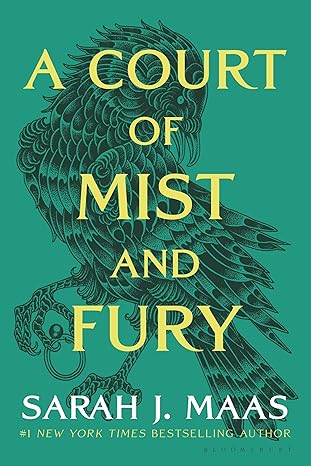Unpacking the Secrets to Creating a Great Movie with James Cullen Bressack

In this insightful discussion, filmmaker James Cullen Bressack shares his thoughts on what it takes to create a compelling film. From the importance of engaging storytelling to the value of personal experiences, Bressack provides a unique perspective on the challenges and triumphs of filmmaking.
Table of Contents
- The Challenge of Making a Great Movie
- The Importance of Being Pleasant
- Creating a Positive Work Environment
- Lessons from Shadowing a Filmmaker
- The Film Community and Personal Growth
- Reframing Competition in Filmmaking
- FAQ: Common Questions About Filmmaking
The Challenge of Making a Great Movie
Creating a great movie is an intricate process filled with challenges. Many filmmakers struggle with time constraints, which can hinder their creative vision. Short shooting schedules often force directors to make compromises that can impact the film’s quality.
In addition to time, budget constraints play a significant role. Limited resources can restrict access to desired locations, equipment, and talent. Achieving a spectacular film often requires a balance of time, money, and creativity.

The Role of Time in Filmmaking
Time is a crucial element in the filmmaking process. A longer shooting schedule allows for more detailed planning and execution. This can lead to a more polished final product.
Conversely, tight deadlines can result in rushed decisions. Filmmakers may sacrifice depth in storytelling or character development to meet production timelines. Understanding this dynamic is essential for aspiring filmmakers.

Understanding Taste in Cinema
Taste in cinema varies widely among audiences. What resonates with one viewer may not appeal to another. This subjectivity makes it challenging for filmmakers to create universally loved films.
Filmmakers must navigate these differences in taste while remaining true to their vision. The key is to find a balance between personal expression and audience expectations.

Defining a Great Movie
Defining a great movie can be subjective, but many agree that it includes standout moments. A popular notion is that a great film comprises three exceptional scenes without any bad ones. These memorable moments can elevate an average film to greatness.
Great movies often possess a timeless quality, allowing viewers to watch them repeatedly without losing interest. Iconic films maintain engagement regardless of when they’re viewed, making them classics.

Engagement: The Key to Captivating Audiences
Engagement is vital for any successful film. A captivating movie holds the audience’s attention from start to finish. It creates an immersive experience that distracts from daily distractions, such as smartphones.
Effective storytelling techniques, strong characters, and compelling visuals contribute to audience engagement. Filmmakers must strive to create a connection that resonates deeply with viewers.
Memorable Movie Experiences
Memorable movie experiences often stem from personal connections. The first time watching a film with loved ones can leave a lasting impression. These moments shape our understanding and appreciation of cinema.
For many, the thrill of seeing a film deemed inappropriate for their age enhances the experience. Such memories become cherished stories that highlight the excitement of cinema.

Charting Your Own Path in Filmmaking
Every filmmaker’s journey is unique. There is no one-size-fits-all roadmap to success in the industry. Aspiring filmmakers should take inspiration from others while forging their own paths.
Creativity thrives when individuals embrace their authenticity. Engaging with others in the industry while staying true to oneself can lead to innovative storytelling and fresh perspectives.

The Importance of Being Pleasant
In the competitive world of filmmaking, personality can often outweigh talent. Being pleasant creates a collaborative atmosphere that fosters creativity. Filmmakers who prioritize positive interactions often find more opportunities and support from their peers.
James emphasizes that while talent is essential, it opens doors; being pleasant keeps them open. A friendly demeanor can ease tensions on set and encourage team members to contribute their best work.

Building Relationships
Filmmaking is inherently a collaborative effort. Relationships matter, and they can significantly affect the production process. Building rapport with cast and crew leads to a more cohesive team dynamic.
When everyone feels valued and respected, creativity flourishes. A pleasant working environment can enhance productivity and lead to innovative solutions to challenges.

Creating a Positive Work Environment
A positive work environment is crucial for fostering creativity and ensuring a successful production. Filmmakers should strive to cultivate an atmosphere where everyone feels comfortable expressing their ideas. This can lead to richer storytelling and a more engaging final product.
Encouragement and support should be at the forefront of a filmmaker’s approach. Recognizing individual contributions promotes a sense of ownership and pride among team members.
Encouraging Open Communication
Open communication is vital in any collaborative setting. Filmmakers should create channels for team members to share their thoughts and feelings. This transparency can prevent misunderstandings and foster a sense of belonging.
Regular check-ins and feedback sessions can help maintain alignment on the project’s vision. This practice not only enhances the final product but also strengthens team bonds.
Lessons from Shadowing a Filmmaker
Shadowing an experienced filmmaker can provide invaluable insights into the industry. Observing their decision-making processes and interactions can help aspiring filmmakers understand the nuances of filmmaking.
James notes that humor and a lighthearted approach can significantly influence the atmosphere on set. This balance of seriousness and playfulness creates an environment conducive to creativity.

Understanding the Workflow
Filmmaking involves a complex workflow that requires organization and adaptability. Shadowing a filmmaker allows one to witness how they manage various aspects of production. From pre-production planning to post-production editing, each phase has its own challenges and rewards.
A hands-on experience can demystify the filmmaking process and equip aspiring filmmakers with practical knowledge. Observing how a filmmaker navigates obstacles offers crucial lessons that can be applied in future projects.

The Film Community and Personal Growth
The film community is a rich tapestry of diverse voices and experiences. Engaging with others in the industry can lead to personal growth and expanded perspectives. Networking is not just about career advancement; it’s about learning from one another.
James believes that sharing experiences can inspire creativity and innovation. By participating in community events, aspiring filmmakers can forge meaningful connections that enhance their craft.

Embracing Feedback
Receiving feedback is an essential part of growth in any creative field. The film community thrives on constructive criticism, which can help refine storytelling and technical skills. Filmmakers should approach feedback with an open mind and a willingness to learn.
Engaging with peers and mentors can provide fresh insights and spark new ideas. This collaborative spirit is what drives the film industry forward.

Reframing Competition in Filmmaking
Competition can be a double-edged sword in the filmmaking world. While it can motivate filmmakers to strive for excellence, it can also breed negativity. James encourages aspiring filmmakers to view competition as a source of inspiration rather than a measure of worth.
Seeing others succeed should be a reminder that success is attainable. Each filmmaker’s journey is unique, and there is room for everyone in the industry.

Redefining Success
Success in filmmaking is not solely defined by accolades or box office numbers. Personal fulfillment and the ability to tell meaningful stories are equally important. Filmmakers should focus on their growth and the impact of their work rather than comparing themselves to others.
This mindset shift can alleviate the pressure often associated with competition and lead to more authentic storytelling.

FAQ: Common Questions About Filmmaking
As filmmakers embark on their journeys, they often have many questions. Addressing common inquiries can help demystify the process and provide clarity. Here are some frequently asked questions about filmmaking:
- What is the best way to start making films? Start by creating short films with available resources. Practice is key.
- How important is a film school education? While film school can provide valuable knowledge, hands-on experience and networking are equally important.
- How do I find collaborators for my projects? Attend local film events, join online forums, and engage with the film community to meet potential collaborators.
- What should I focus on when writing a script? Prioritize strong character development and a compelling narrative arc that resonates with audiences.
- How can I finance my film? Explore crowdfunding, grants, and partnerships with local organizations to secure funding for your project.





















6ap9hv